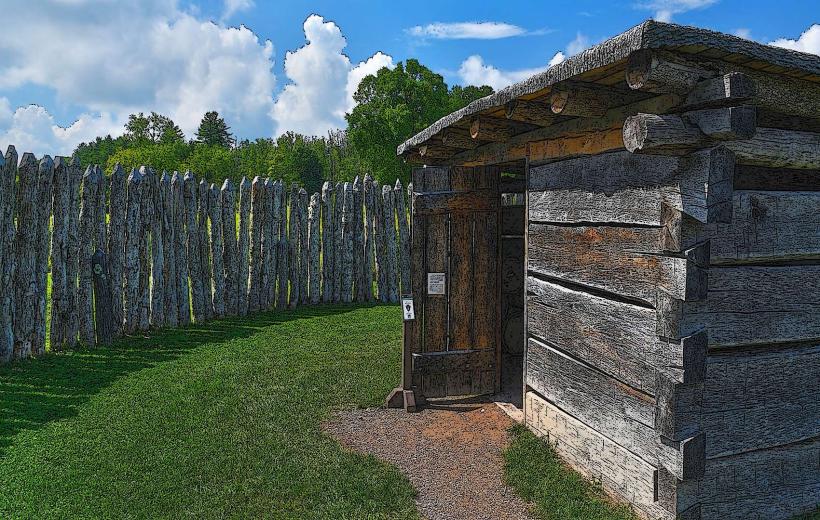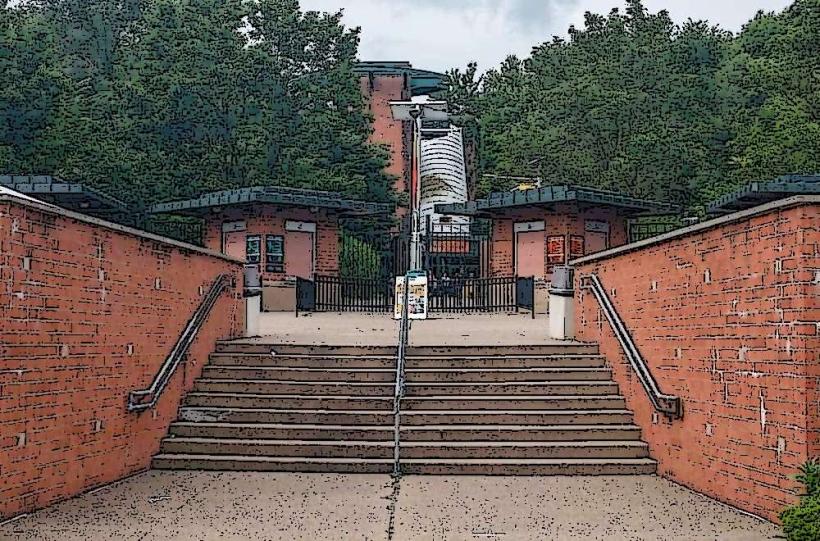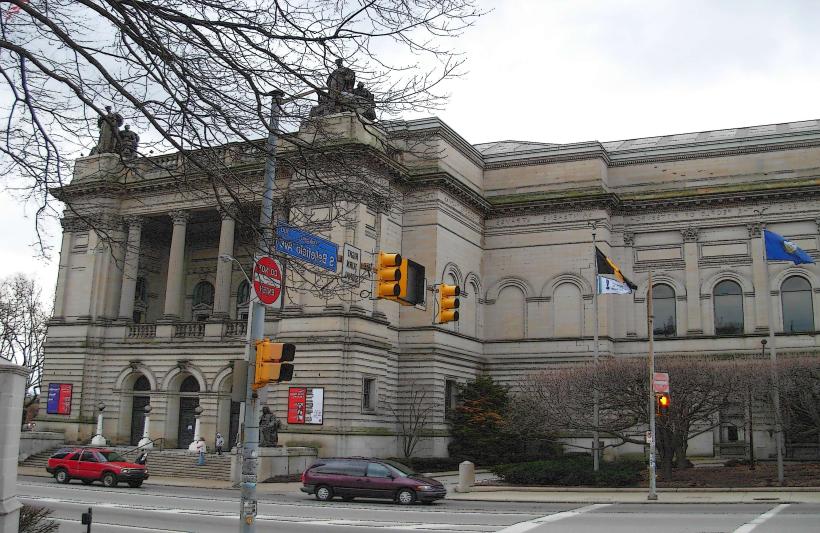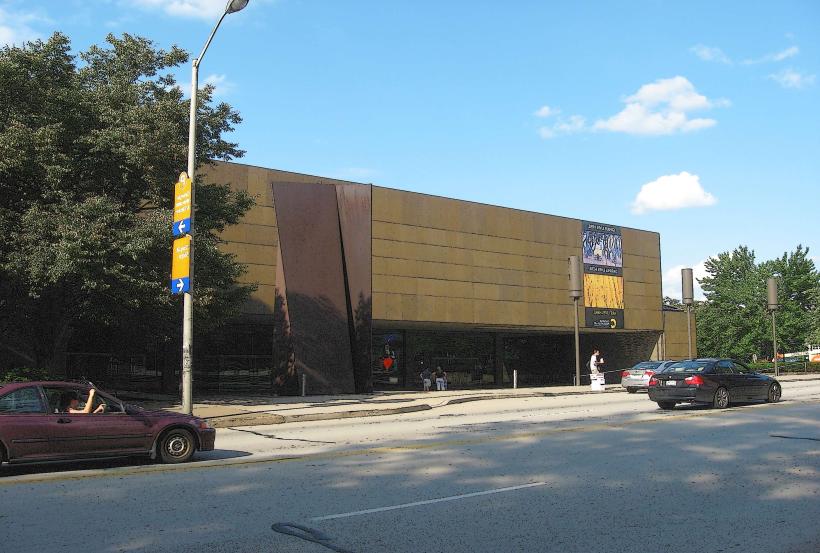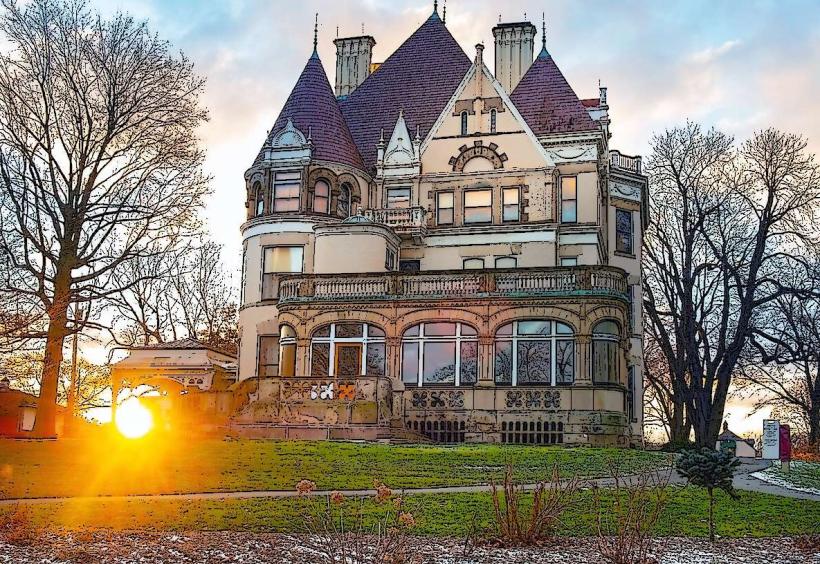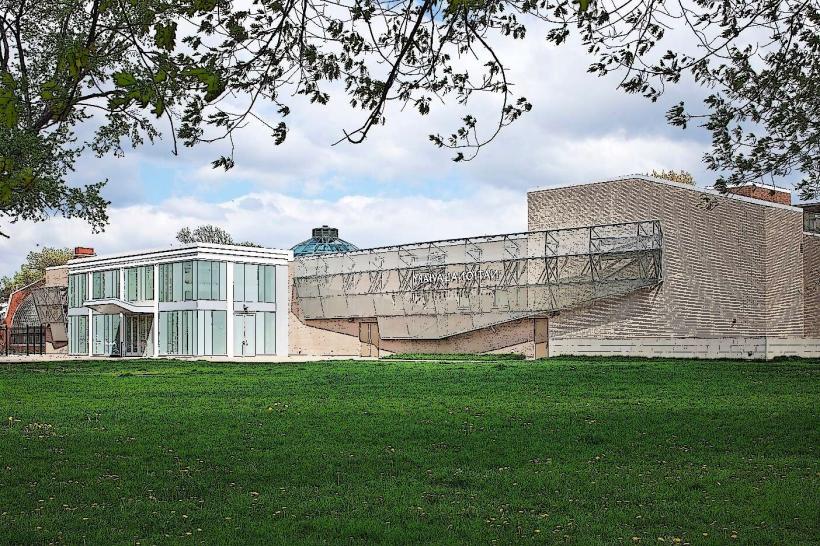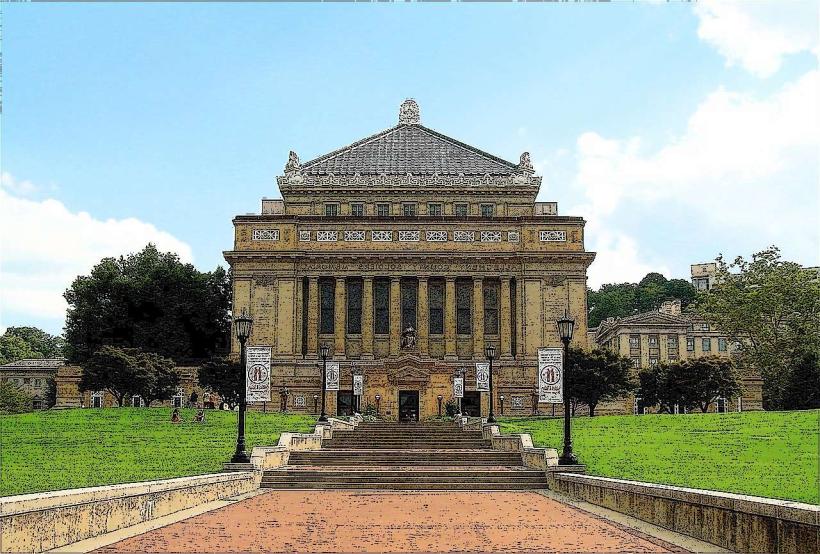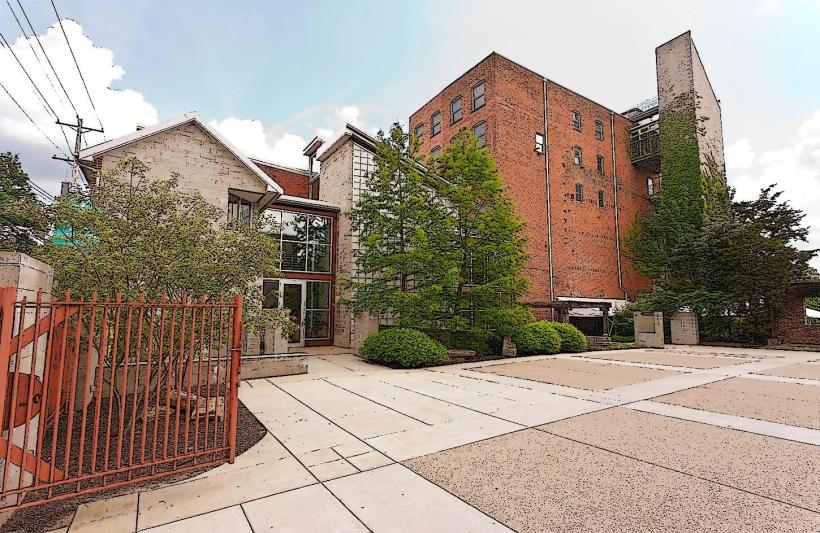Information
Landmark: Cathedral of LearningCity: Pittsburgh
Country: USA Pennsylvania
Continent: North America
Cathedral of Learning, Pittsburgh, USA Pennsylvania, North America
The Cathedral of Learning is a 42-story skyscraper located on the University of Pittsburgh's main campus in Pittsburgh, Pennsylvania.
It serves as an academic building for the university and is the second-tallest university building in the world.
Visual Characteristics
Constructed primarily from limestone and granite, the building stands 535 feet (163 meters) tall. Its Gothic Revival architectural style is characterized by a central tower with setbacks, large Gothic arched windows, and decorative stonework. The exterior is predominantly a light grey stone, with darker grey granite at the base.
Location & Access Logistics
The Cathedral of Learning is situated at 4200 Fifth Avenue, Pittsburgh, PA 15260, approximately 3 miles (4.8 km) east of downtown Pittsburgh. Access is via Fifth Avenue, with parking available in the university's Oakland parking garages. Public transport options include Port Authority of Allegheny County bus routes 52, 54, 58, 61A, 61B, 61C, 61D, 65, 67, 68, 71A, 71B, 71C, 71D, 75, and 82, all with stops near the building.
Historical & Ecological Origin
Construction began in 1926 and was completed in 1936, designed by the architectural firm Cram and Ferguson. Its original purpose was to consolidate the University of Pittsburgh's academic departments into a single, imposing structure, symbolizing the university's growth and aspirations.
Key Highlights & Activities
Visitors can explore the Nationality Rooms, which are 31 unique classrooms decorated in the styles of various ethnic groups that contributed to the population of Pittsburgh. Guided tours of the building and the Nationality Rooms are available. The main Commons Room on the first floor is open for public viewing.
Infrastructure & Amenities
Restrooms are available on multiple floors. Limited shaded areas are present within the Commons Room. Cell phone signal (4G/5G) is generally strong within the building. Food vendors and dining facilities are located within the surrounding University of Pittsburgh campus.
Best Time to Visit
For interior photography, the best time of day is mid-morning to early afternoon when natural light illuminates the Commons Room and Nationality Rooms. The building is accessible year-round during university operating hours. No specific tide requirements apply.
Facts & Legends
A persistent urban legend claims that the building's architect, Ralph Adams Cram, designed the building with a hidden room for himself, accessible only through a secret passage. While unverified, the story adds to the building's mystique. The Nationality Rooms are maintained by student groups representing each nationality, ensuring their historical accuracy.
Nearby Landmarks
- Carnegie Museum of Natural History (0.2km West)
- Carnegie Museum of Art (0.2km West)
- Schenley Park (0.4km Southeast)
- Phipps Conservatory and Botanical Gardens (0.6km South)
- Heinz Memorial Chapel (0.1km West)



